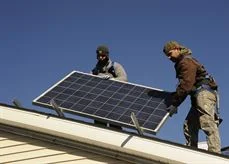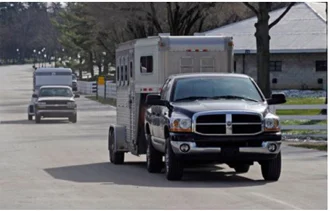In this blog, editor Sabrina Castille writes about the breadth of coverage for insurance policy holders for incidents regarding pollution.
Monsanto’s Dicamba a Headache for Farmers
A Call to Modify the Section 201 Safeguard for the Solar Panel Industry
After three months to consider the USITC’s submission, President Trump elected to implement a tariff-quota on solar cell imports. Following the President’s announcement, stocks in U.S. based companies that could benefit as a result of the tariff imposition on solar equipment experienced an aggressive increase. Conversely, the loss of twenty-three thousand jobs and the delay or elimination of billion-dollar investments seems to be probable.
Profits Over Life: Trump DOI Reverses Traditional Protection for Migratory Birds
A Monumental Mess: Can President Trump’s Administration Find Legal Ground to Support Its Decision to Modify National Monuments?
On Monday, December 4, 2017, President Trump signed presidential proclamations to shrink both the Bears Ears and Grand Staircase-Escalante National Monuments, resulting in the largest reduction of public-lands protection in the history of our nation. While some have supported the decision, there are many others who have strongly opposed it, bringing an unexplored legal question into the limelight: Does the 1906 Antiquities Act give the president the power to modify or eliminate national monuments, as well as designate?
Who’s the Real MVP? A “Quick-Take” Eminent Domain Battle Between Private Landowners and the MVP Pipeline
EQT Corporation is planning to build the Mountain Valley Pipeline (MVP), in a first-time joint venture with four other gas companies, which will cut through the Blue Ridge Mountains in West Virginia and Virginia. The controversy surrounding the project, slated to break ground in February 2018, is in full swing.At the heart of the controversy, however, is a private company using the federal power of eminent domain to take away private landowners’ property for a pipeline that many argue is not even needed.
State and Federal Budget Cuts to Harm Conservation Districts
On January 16, 2018, the Office of the State Budget Director in Kentucky published the Executive Budget for the 2018–2020 fiscal years. Included in the budget is the elimination of seventy state-funded programs, one of which is Direct Aid to Kentucky’s Soil and Water Conservation Districts (SWCDs). Rowlett says that Direct Aid is necessary to fund district initiatives like technical assistance to landowners with Agricultural Water Quality Plans, funding for Envirothon teams, and other educational endeavors that help fulfill the districts’ conservation mission.
The ELD Mandate Does Not Significantly Impact Horse Owners
Contrary to recent social media panic, the Electronic Logging Device (ELD) mandate will not significantly impact horse owners. Only drivers that are already required to log their driving records under hours-of-service (HOS) and records of duty status (RODS) requirements will be impacted by the ELD mandate.
Repealing Rapanos: Shrinking the Clean Water Act’s Jurisdiction
It is not often that a criminal appeal can change the face of American environmental law and change the jurisdiction of major environmental legislation. This is why anyone concerned with ecological diversity or clean water ought to be watching closely for the Supreme Court’s upcoming decision in United States v. Hughes. In particular, it may greatly decrease the regulatory scope of the Clean Water Act, which controls the discharge of pollutants into the “navigable waters” of the United States.














